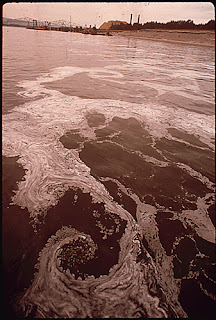Starting menstruation is tough enough for most girls, but some teenagers have more than just their changing bodies to cope with. For many girls in Bolivia, the start of menstruation can mean the end of their education too.
Rebecca Peters, an International Development Economics and Global Poverty student at the University of California, Berkeley, is on a mission to stop this from happening. Last summer, Rebecca spent 10 weeks working in Cochabamba, Bolivia, as a partner with the Foundation for Sustainable Development and Water for People to install water treatment systems in schools.
"I saw the effects of improved water sources in schools, as well as what happens when there aren't any reliable water sources," she says. "One of the problems was that girls tended to stop attending school - or drop out altogether - because there was no safe running water for them to wash with when they were menstruating.
"There's a lot of stigma and taboo associated with menstruating, not just in Bolivia but all around the world. There are very few initiatives targeted at improving girls' education, health and access to safe water. Many girls drop out of school, particularly in neglected migrant and indigenous communities."
Rebecca's response is the Pachamama Project, which aims to improve health and education for girls by providing equal access to safe water and sanitation in schools. Pachamama will launch in Bolivia and Mexico this March in partnership with the Mexico-based non-profit Fundación Cántaro Azul.
"The basic goal of Pachamama is to engage groups who wouldn't normally be talking about Menstrual Hygiene Management (MHM) and to put the issue on the water sanitation and hygiene agenda," says Rebecca, who has worked on various water and energy related collaborations in Guatemala, Denmark, France and Mexico - always with an eye toward improving gender equity in the project's outcomes.
So far, Pachamama has been funded by a grant from the Center for Race and Gender at Berkeley. The Pachamama Project is also a finalist in the human rights category of the Big Ideas at Berkeley competition, but her long-term goal is for the project to become self-sustaining. "I want it to be owned by the community and be something that people really want to continue once I'm not there anymore," she explains.
It's not just about fitting clean water systems, though. Rebecca recognises that there are deeper cultural and social barriers to girls' education: "There might be some community push back to it, where people aren't willing to participate. Studies of MHM have shown that girls are really shy to talk about menstruation, so making things fun is really important. We need to create games and make things more interactive so it doesn't seem scary or taboo to talk about.
"One of the initiatives we'll do is give disposable cameras to girls and boys and ask them to go round and take photos of places they deem scary. Previous projects that have done things like this have found that children often take photos of bathrooms and I think that sends a really strong message to development institutions to say 'OK, this is something that we really need to focus on.'"
It's a big ambition but Rebecca is confident that it will make a big difference to girls' lives. "The goal is to create the girl effect," she says. "I hope that by putting MHM on the water and sanitation development agenda, and by tapping into the human rights discourse, the project can overcome the taboos associated with menstruation and really highlight that it's much bigger than that. It's about education and social justice as well as health."
See source here
The Pachamama website is currently being built but in the meantime you can find out more here or by following Rebecca Peters on Twitter.
The Pachamama website is currently being built but in the meantime you can find out more here or by following Rebecca Peters on Twitter.
Follow FSD on Twitter or Like FSD on Facebook.

We are thus fired up available for you!! This can be apt to be your time and efforts! I simply comprehend it!
ReplyDeleteCheap Blade And Soul Gold
Gold für Diablo 3 Kaufen
buy runescape gold